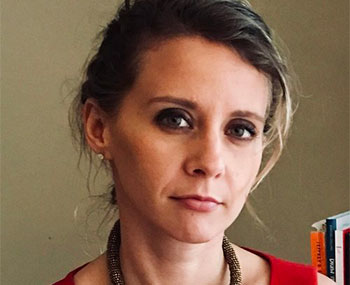A movement across 7 African nations is mobilizing citizens to demand accountable government action that effectively addressed the ongoing COVID-19 challenges. How?
Through a growing coalition called the COVID-19 Transparency and Accountability Project (CTAP), run by Global Integrity and two partner organizations in Nigeria: BudgIT and Connected Development (CODE).
To find out about what’s been accomplished so far, read the CTAP Learning Report, which highlights lessons on advancing these critical tenants through partnerships, advocacy, and citizen mobilization (see below for firsthand insights).
Watch an insightful interview with 3 project leads (GI, CODE, BudgIT):
The report summarizes the CTAP journey since the inception of the project and outlines the way forward. We dive deep into the experiences of partners in 7 countries (Cameroon, Ghana, Kenya, Liberia, Malawi, Nigeria, and Sierra Leone) and distill lessons and reflections that inform future advocacy and collaboration initiatives to advance accountability and transparency across Africa.
Here are the highlights of what we did:
- Gathered and disseminated data about international, regional, and local donations to governments in Africa, as well as internal resource mobilization in 7 focus countries.
- Conducted research about government use of public resources to respond to COVID-19, assessing how they have used these resources, and what actions they are taking to ensure transparency, accountability, and effectiveness
- Tracked service delivery to raise citizens’ voices and awareness about what services they should expect to receive and how their governments are delivering these services.
- Built local coalitions to fight corruption and waste, and to promote governance reforms that enable citizen engagement, ensure proper and effective use of public money, and demand corrective actions as needed.
- Promoted innovative ways to catalyze citizen mobilization and create opportunities for multi-stakeholder collaboration that can generate and implement solutions to the problems that hinder democracy, enable corruption, and diminish government effectiveness.
Watch a 2-minute snapshot lesson from Malawi:
Here are the highlights of what we learned:
The Challenges
- Governments have attributed the lack of transparency to the need to act quickly during the pandemic, as well as to the lack of technical capacity that predates the pandemic.External incentives have not been enough to change government practices, with inadequate anti-corruption and citizen engagement processes.
- Furthermore, the influx of international aid was not safeguarded against resource capture by political and economic elites, in some cases.
- This has exacerbated weak social protection systems across the continent, leading to increased inequality, diminished livelihoods, and muzzled voices of vulnerable groups.
The Solutions
- Strategies to boost citizen engagement in project activities and public debates help amplify the voices calling for greater transparency and accountability. Using methods to make information more accessible for the public helps. This includes: (1) producing infographics; (2) hosting radio programs, podcasts, and social media chats; (3) producing videos and documentaries that present the perspectives of affected citizens and service delivery providers.
- Citizen mobilization is an important element of change, but it is not enough for turning action and findings into successful advocacy and reform. This is where diverse CSO coalitions can take action to push the policy agenda forward by putting direct pressure on governments to act.
- The overall lack of transparency has led partners to deploy a range of strategies specific to the characteristics of their contexts.
For more stories from our country partners, read the full report below.
About CTAP:
The COVID-19 Transparency and Accountability Project (CTAP) is an initiative that seeks to promote accountability and transparency through the tracking of COVID-19 intervention funds across 7 African countries: Cameroon, Ghana, Kenya, Liberia, Malawi, Nigeria, Sierra Leone.
CTAP is sponsored by the Conrad N. Hilton Foundation and the Skoll Foundation. The project is executed by BudgIT Foundation, Connected Development, and Global Integrity.







